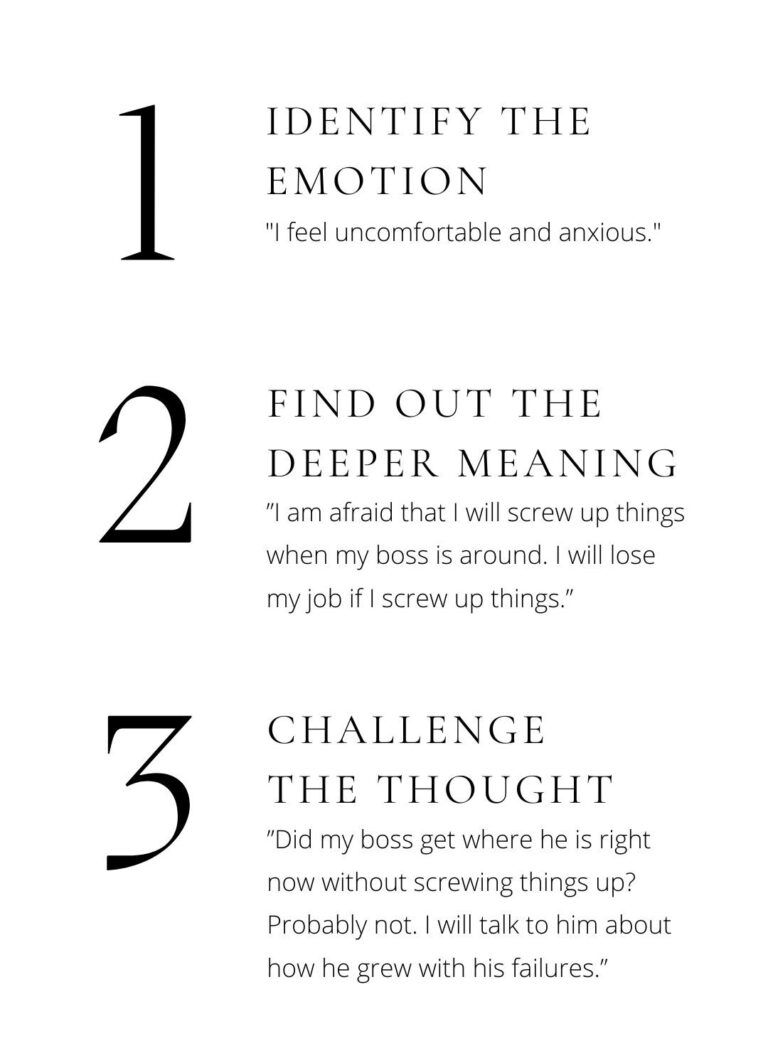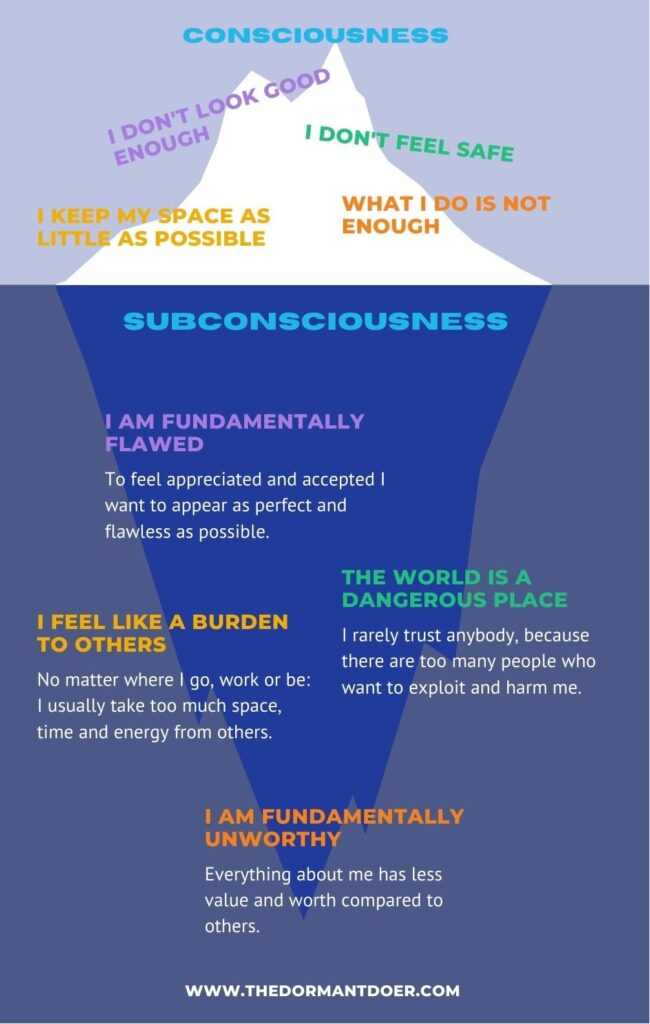Identify your core beliefs now:
A Simple 3-Step Questionnaire
Far too often we steer through our lives without consciously examining the roots of our beliefs. We simply accept them as truths without questioning their origin or impact. Whether you are seeking to overcome limiting beliefs that hold you back, align your actions with your values, or unlock your untapped potential: identifying your core beliefs with the core belief questionnaire (CBQ) will serve as your compass, guiding you towards a greater understanding of yourself and the world around you.
how do you assess Negative core beliefs?
Core beliefs are the invisible threads that influence very aspect of your life, from your relationships and career choices to your daily habits and overall happiness. Strong and effective strategies have been created to unveil beliefs that are ingrained and hidden beneath the repeating phrases we tell ourselves.
One strategy that’s been employed since decades is the Core Belief Questionnaire by Aaron Beck in 1979. He’s known as the founding father of the Cognitive Behavior Therapy. Beck and his daughter Judith Beck revolutionized the way how therapists can shed light on their clients automatic (destructive) thoughts. Thoughts that are reoccurring to manipulate a given situation. Often times these thoughts are deeply rooted in the way we think and behave. Aaron and his daughter created a simple but powerful 3-step procedure to unveil automatic thoughts:

what is the core belief questionnaire (CBQ)?
The core belief questionnaire (also known as belief inventory) is a structured tool designed to help you identifying and examine your core beliefs. It usually consists of a series of questions or statements that prompt self-reflection and exploration of deeply held beliefs. With the core belief questionnaire, you can easily unravel and question automatic beliefs that may haunt you for a long time already.
Identifying Negative core beliefs: The questionnaire
Here is a light version of the CBQ to quickly identify negative core beliefs about yourself. Try being as honest as possible but treat yourself with vigilant compassion at the same time. The goal is not to provide a number to show how flawed and wrong you are. It’s about lifting the fog in your mind to find and question how you think about yourself, others and the world. Since I am no therapist, identifying your core beliefs with this survey is a great start to get the ball of professional introspection rolling. Seeking guidance from a professional cognitive behavioral therapist is the logic next step of this journey.
In this section, please indicate the extent to which the following areas of your life are affected by your negative core beliefs, using the same scale as before.
- Evaluating Core Beliefs
- Impact
- Sending to
Please check the highlighted fields.
List of negative Core beliefs
Responsibility / I am something "wrong"
I don’t deserve love.
I am a bad person.
I am terrible.
I am worthless (inadequate).
I am shameful.
I am not lovable.
I am not good enough.
I deserve only bad things.
I am permanently damaged.
I am ugly (my body is hateful).
I do not deserve . . .
I am stupid (not smart enough).
I am insignificant (unimportant).
I am a disappointment.
I deserve to die.
I deserve to be miserable.
I am different (don’t belong).
Responsibility / I did something "wrong"
I should have done something.
I did something wrong.
I should have known better
Safety: Vulnerability
I cannot be trusted.
I cannot trust myself.
I cannot trust my judgment.
I cannot trust anyone.
I cannot protect myself.
I am in danger.
It’s not okay to feel (show) my emotions.
I cannot stand up for myself.
I cannot let it out.
Control / Choice
I am not in control.
I am powerless (helpless).
I am weak.
I cannot get what I want.
I am a failure (will fail).
I cannot succeed.
I have to be perfect (please everyone).
I cannot stand it.
I am inadequate.
I cannot trust anyone.
List of Positive Core beliefs
Responsibility / I am something "right"
I deserve love; I can have love.
I am a good (loving) person.
I am fine as I am.
I am worthy; I am worthwhile.
I am honorable.
I am lovable.
I am deserving (fine/okay).
I deserve good things.
I am (can be) healthy.
I am fine (attractive/ lovable).
I can have (deserve) . . .
I am intelligent (able to learn).
I am significant (important).
I am okay just the way I am.
I deserve to live.
I deserve to be happy.
I am okay as I am.
Responsibility / I did something "right"
I did the best I could.
I learned (can learn) from it.
I do the best I can (I can learn).
Safety: Vulnerability
I can be trusted.
I can (learn to) trust myself.
I can trust my judgment.
I can choose whom to trust.
I can (learn to) take care of myself.
It’s over; I am safe now.
I can safely feel (show) my emotions.
I can make my needs known. I can choose to let it out.
Control: Choice
I am now in control.
I do have choices.
I am strong.
I can get what I want.
I can succeed.
I can succeed.
I can be myself (make mistakes).
I can handle it.
I am capable.
I can choose whom to trust.
The narratives we carry with us

